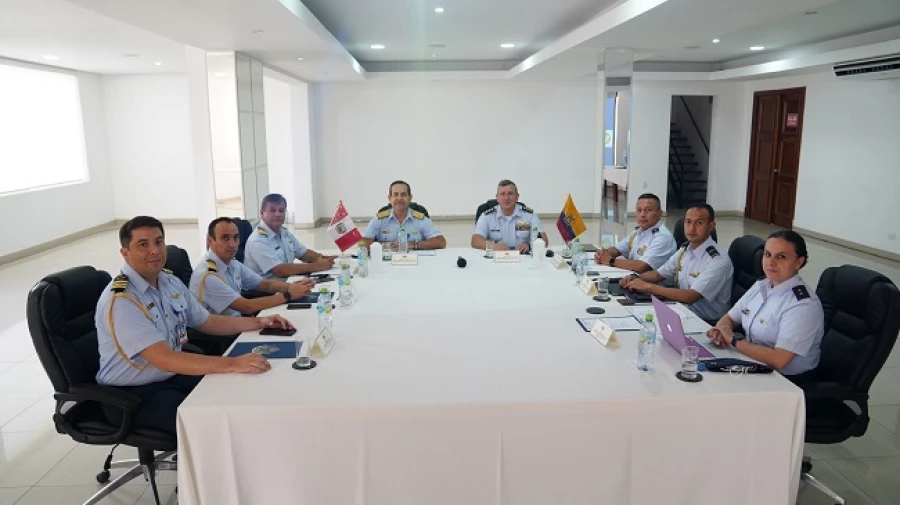RIO DE JANEIRO, BRAZIL – The Air Forces of Peru and Colombia have held the V Bilateral Meeting of Major States with the objective of establishing cooperation measures in various areas of mutual interest.
The Peruvian Air Force has stated in its official Twitter account that “the mutual sharing of experiences, both operational and logistical, contribute to the strengthening of trust and bonds of fraternity, favoring the realization of a united work in pursuit of the development of both nations, as well as the welfare, defense and security of the South American region”.
Additionally, Peru and Colombia share a long common border where drug trafficking gangs are active, which is why meetings such as this one can be very useful to increase joint activities against transnational organized crime organizations.
The Colombian Air Force is promoting an interesting project to modernize its fighter aviation, being in search of its next combat vector, having as main candidates the F-16 of U.S. origin and the Gripen of Swedish origin.

UKRAINE CONFLICT
On the other hand, the Peruvian Air Force is facing a complicated situation with the crisis in Ukraine, with the participation of Belarus, being these countries suppliers of spare parts for Mi-171SH helicopters, MiG-29 fighters and Su-25 close air support aircraft.
Rosoboronexport has always emphasized the importance of implementing logistic support programs with the original manufacturer, however, the sanctions implemented by several European countries and the United States against Russia will complicate the supply of spare parts.
The Czech Republic’s aircraft industry may be an alternative source of spare parts, but it will certainly be opposed by the original equipment manufacturer.
Eventually, the FAP will have to decide whether or not to abandon Russian helicopters and combat aircraft and replace them with European products, although first, it will have to overcome the scarce support that the state administration of Pedro Castillo has been giving to the modernization of the Peruvian Armed Forces, which for the time being is translating into few contracting processes in the first quarter of 2022.
With information from Infodefensa

